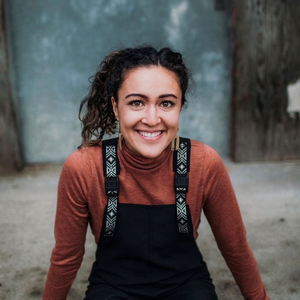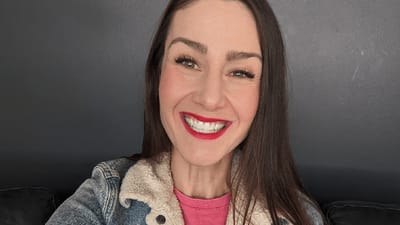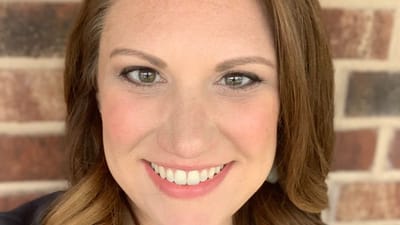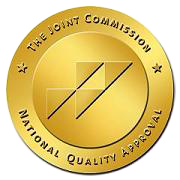Bipolar Disorder, Motherhood, and Relationships: Choosing Connection
Mental Note is available on Apple Podcasts, Spotify, Stitcher, or wherever you get your podcasts. Search for Mental Note, and subscribe so you never miss an episode!
As a teenager, Kea Yamamoto’s behaviors transformed from being respectful, creative, and empathetic to ones that alienated the people she cared most about. Not only did she lash out, but she also stopped sleeping, began hallucinating, and felt immune to consequences.
Kea’s eventual diagnosis of Bipolar I Disorder proved to be both a relief and a frightening look into the unknown. Would she be able to enjoy the relationships and experiences that make life worthwhile? Or would she move deeper into isolation and pain?
Today’s episode - in collaboration with the podcast I Know Lonely and the non-profit Only 7 Seconds - explore’s Kea’s 10-year journey towards a fulfilling life. We cover how she mended relationships, what dating with a Bipolar diagnosis was like, and why she decided to become a mother despite the hereditary nature of her disorder.
Transcript
Kea Yamamoto:
Growing up in Cashmere, it was really difficult to talk about my mental health. It's, like I said, a very small town. I graduated with about 100 people, and I really didn't even understand what mental health was.
Ellie Pike:
Living with an undiagnosed disorder can feel confusing and lonely.
Kea Yamamoto:
Obviously, something was wrong in high school, and I went through depression and then I actually had a psychotic break that resulted in me being hospitalized, and I found out that I had bipolar disorder one.
Ellie Pike:
For Kea Yamamoto, the relief of finally receiving a diagnosis cut both ways. Yes, it was incredible to finally understand why her mood was starting to shift erratically, but what did that diagnosis mean for her future? Would her family understand? Could she maintain meaningful relationships? What if she wanted to start her own family one day?
Kea Yamamoto:
I just thought, "What if I pass on my diagnosis to my future children?"
Ellie Pike:
As many of you know, a mental health diagnosis is only the beginning of a long journey. Choosing hope and learning how to rewire thoughts and choose new actions is an act of both creativity and bravery. Today, Kea shares with us how she moved from feeling very alone and out of control towards cultivating a life that revolves around community and understanding. We'll discuss how she learned to ask for what she needs, what helped transform her relationships, and how she dealt with the very real possibility of passing on bipolar disorder to another generation when deciding to become a mom.
This episode was made with our friends at the non-profit Only7Seconds, who produced the I Know Lonely Podcast. So in addition to listening to Mental Note Podcast, allow me to welcome you to I Know Lonely. I'm your host, Ellie Pike. Before we continue with Kea's story, I'd like to introduce you to Only7Seconds' founder, Luke Wall. He'll explain a bit about who they are and what they do.
Luke Wall:
Hey, everyone, I just wanted to tell you about Only7Seconds for a moment. Only7Seconds is on a mission to end loneliness. We know that human connection is vital to our existence. We know that to live more genuine, authentic, healthy lives, that we have to live in connection with other human beings. It's as important as bread and water to our lives, just like the U.S. Surgeon General recently said, and we're facing an epidemic of loneliness today. So Only7Seconds is inspiring people to make intentional connections to help end the loneliness epidemic. To learn more, check us out at only7seconds.com.
Kea Yamamoto:
There's really no mental health history in my family that we know of. When my mom and dad were worried about my mental health, they actually thought that I was taking drugs. My mood was just so imbalanced. I went from being a really friendly kid and just a happy person to being really brash and rude, and I never really thought about anyone else's feelings. It was really like a flip of a switch that my parents were confused about, and there was just a part of them that were thinking, "It just doesn't seem right, though. This is worse than just your average teenage mood swings."
Ellie Pike:
And when you described mood swings, you talked some about struggling with depression, and I feel like a lot of our listeners understand what depression can look like. Can you describe for you, though, what depression looked like, and then also what mania looked like?
Kea Yamamoto:
Depression looked like me going from being a fairly good athlete my freshman year of high school and really loving my friends, hanging out with my friends and spending time with my family, and then all of a sudden it was like I couldn't describe why I was feeling off, but it seemed like nothing was making me happy anymore. So running, that usually made me really happy, wasn't making me happy. And being at school and around my friends wasn't seeming to cut it. It was kind of this level of confusion of, everything is going right, which I'm sure listeners probably have an idea of, but why do I not feel okay? So that's kind of the depression I went through, and then really transitioned out of that and started... I kind of describe it as I was in this deep valley, and then I started climbing up a mountain.
The warning signs, it started smaller. So kind of climbing that mountain, I wasn't quite to the top, but it started with me being really brash, like I mentioned. And I honestly had the worst sailor's mouth. I would sit at the dinner table and I would tell my parents to shut their F-ing mouth. And so I remembered my brother just shrinking in his seat, going, "Oh my gosh, she just said that to Mom and Dad." What was frustrating to them is it seemed like there were no repercussions. They could tell me, "Go to your room," or, "You're grounded," and I would kind of say, "Cool, sounds good." It was like, "What can we do to even parent her at this point?"
As it escalated, they were really concerned when I didn't sleep for four days and four nights. And that is a symptom of bipolar disorder, I found out later, is your brain basically can't slow down, so you won't slow down to eat, you won't slow down to sleep, you won't slow down to do anything. It's just in hyperdrive. And I took a black Sharpie, a literal black Sharpie, to my walls and just wrote nonsense. And not just a small section. My entire bedroom. So that's when my parents thought, "There's something honestly seriously wrong." So they decided to take me up to my family's cabin at Lake Wenatchee, and they were hoping that would make a difference, but unfortunately, it just escalated. And I ended up leaving the cabin at 5:00 AM the next morning, and at that point I was hallucinating.
Ellie Pike:
Wow. I can only imagine the feelings that your family was going through and also your personal experience of not sleeping and then eventually hallucinating. And then that's when you landed upon this diagnosis and you started to seek out treatment. And fast forward a little while. I know there's a lot that we could talk about in this podcast, but fast forwarding a little bit, what have been some of the most helpful elements in seeking treatment?
Kea Yamamoto:
I think for me personally, I was hospitalized at a mental health care facility, and even though not everyone has a great experience, and there were definitely ups and downs, I was kind of on a crunch time. I really wanted to be able to be present my senior year of high school, and I was diagnosed in July of the summer before my senior year. I really wanted to fast track getting medications leveled out for me. They were able to fast track my medications, because you're under watch for 24 hours a day, and I was able to regulate my medications in two weeks. Then I came back home, and I was able to see a psychiatrist and continue that care.
Ellie Pike:
And have you continued that care with an outpatient therapist as well?
Kea Yamamoto:
Absolutely. Yes. I see my therapist once a month. Even if I'm feeling great, I still keep my appointment. And my philosophy is, well, if I'm sitting there and I'm telling her how great everything's going, then awesome. If I'm sitting there and I think everything's great, and then slowly I'm talking through things and I go, "Oh, that actually isn't going so great," then that's a great opportunity for me to get help.
Ellie Pike:
And what are some key ways that you've learned to manage your disorder day by day? So for example, medication or coping skills or just sleep regulation.
Kea Yamamoto:
Yes, kind of a combination of everything you mentioned. So my diagnosis is severe enough that I'm going to have to be on medication the rest of my life. It took a long time to make peace with that, but what's worse is feeling out of control, which I really don't like feeling that way. And then sleep is so critical. And with having a newborn, my husband and I had talked before we got pregnant, and I said, "You have to be the nighttime shift when he's first born, because I have to sleep if I'm going to be the best mom I can be." And so if that gives you an idea of how critical sleep is, I hope that kind of shines some light to that.
Ellie Pike:
Well, it does to me as a mom, because I know just how many night calls I get from my children. That I think is really, really incredible that you knew what your needs were in order to protect your recovery and your long-term mental health. I imagine that relationships were really rocky during some of these times where your disorder was more inflamed, if you will. Could you speak to what that looks like to repair and rebuild some of those relationships, and talk about how your disorder has affected some of those relationships in your life?
Kea Yamamoto:
I think the person I was hardest on was my mom, and that was really challenging for her. And I didn't realize at the time how aggressive I was towards her. Not physically, not emotionally, just kind of how I verbalized things. For my dad, he is a little bit more reserved, and so I think that it was easier for me not to lash out at him, which isn't fair, but that's kind of how it went.
As well as friends, I reached out to my best friend who I'd cut ties with completely, and I repaired that relationship by just coming clean and saying, "This is what I'm going through. And I don't know if I'm necessarily ready to tell other people yet," because she was the first friend I told. And I said, "If you can respect that, I really need your help through senior year." And I think for her, me admitting how challenging I made it for her, but being really vulnerable and saying, "I need your help," she was able to set aside the hurt and just say, "I'm here for you." And kind of the same way it unfolded for the rest of my family and my friends. Slowly, I gained back courage, and I was ready to share with people so I could repair all of those relationships as best as I could.
Ellie Pike:
I imagine that's such a journey, and it takes a lot of insight and emotional awareness on your part, along with insight from other folks, and willingness. So can you give me a picture of what your life looks like now with your parents, and some lessons that you have on how to communicate your mental health needs with them?
Kea Yamamoto:
I really think that when I have my mental health under control and I'm stable, I do go back to being really empathetic, and I never want to hurt anyone's feelings, so I really focus on how I deliver something that's upsetting me. For example, my mom, if she's concerned, she's definitely a more direct speaker, and so she will say something like, "You've been recklessly spending. You need to watch your expenses," or, "I think that you're really elevated right now. You should make an appointment."
And so she and I had a pretty long conversation once about how, "I understand that the things you say come from a place of love, and I really appreciate you watching out for my mental health, but sometimes how you deliver things to me really affects me negatively." And so then I really try to follow that up with an example, and so I would say, "When you tell me that Amazon packages are on my doorstep every day, then instead of me receiving that as, 'Okay, I need to get help,' I go through a flashback of the last month of every single item I spent money on, and then I kind of self-implode in my own brain,'" even though she doesn't know that.
And so I'm sitting there in silence, and she thinks I'm mad at her. Well, that's not the case. I'm just internally self-imploding. And once I explained it to her, she just said, "Wow, I'm really sorry. I had no idea that's how it was affecting you, and how can I say it so I'm helping you? Because I just feel helpless in that situation." I told her what would help me is, "When you deliver that to me, let me kind of piece it together myself. So instead of saying, 'There's all these Amazon packages and you're recklessly spending,' say, 'Kea, I just noticed that maybe this month you have seemed just a little bit off. How have you been feeling? And the last time you were with your mental health care provider, what did she say?'" And that way, I have time to process what I'm thinking instead of doing a 30-second flashback.
Ellie Pike:
So it sounds like you're asking your parents to be aware and then come to you gently and bring curiosity to the conversation, and then really ask you how your mood has been. And you noticed that that allows you to self-reflect and probably not get to that self-imploding anger, perhaps, at yourself. Is that the right word?
Kea Yamamoto:
Yes. I think that that would be the right word, or just kind of get really short with them. And learning how to navigate that is just a part of my diagnosis, but it's definitely been a bit challenging.
Ellie Pike:
Well, I really appreciate you sharing how that works with your parents. And I know that a lot of individuals with mental illness are constantly navigating what that looks like to coach other people in their lives to be positive support people, and so I know that many of our listeners will find that to be really helpful. And then we have other listeners who are certainly navigating this with an important partner in their lives. And in your case, it would be your husband. And I know that you all started dating when you were 18. Can you share some of that history and how you've continued to navigate the disorder, but also increase your connection along the way?
Kea Yamamoto:
Of course. Yeah. I have a friend who, she was joking with me and she said, "On your first date, you should tell him, 'I'm bipolar,' and go bah, and try to scare him off and see if he sticks around." And I said, "I don't know if that's the best strategy. I respect the directness, but I kind of really like this guy, so I don't want to just scare him off right off the bat." I ended up waiting for three months. And then we were at my parents' house and we were watching a movie, and the movie got over and I just said, "I kind of have something that we should talk about." And he said, "Okay, what would you like to talk about?
And at that point, there's no good segue into saying you have bipolar disorder, so at that point I was pretty direct. I said, "I really like you and I hope that this doesn't change anything, but I do have bipolar disorder. And I was diagnosed earlier this year, and it's made me really nervous to tell you this." And I remember he just looked at me and he said, "That doesn't change how I feel about you. I don't know a lot about bipolar disorder, but I'm willing to learn." And that really made me feel a lot more at peace, because it was like I was holding on to this secret and wanted to tell him but was fearful that it would scare him off.
Ellie Pike:
I so appreciate his response and his willingness to grow and learn more. And I imagine you were still learning so much. I mean, you had just gotten that diagnosis that year. So now you've been together 10 whole years, and I'm sure that you have learned to communicate a lot around your disorder and what your needs are, so what are some of your key takeaways regarding what works for you all?
Kea Yamamoto:
That's a great question. I think what works best for us is clear communication. And what that looks like is, if there's something that is upsetting him, he is more apt to never want to hurt my feelings. He's so sweet. But then that kind of starts to bottle up, and then he kind of gets a little passive aggressive and he doesn't think that I can tell. So he'll walk inside and there'll be groceries on the floor that I haven't put away yet, and so he'll angrily start putting him in the fridge and then spray down all the counters.
And I immediately know that something's upsetting him, but in his mind he's like, "I'm hiding it. She can't tell." And so he and I had a serious conversation after a few of those instances. And the funny thing is, it was last year, so we'd been together for nine years. And I told him, "Kai, I can tell when you're upset with me. And I understand that you're trying to not hurt my feelings, but then I'm trying to figure out why you're upset, and it's much easier if you just tell me, 'I would appreciate it if you could put the groceries away when you bring them inside.' And I go, 'Great. I'm sorry that I forgot to do that.' But me going through this long checklist of, oh my gosh, what did I do yesterday? What did I do today? It's really hard to figure it out." And so I said, "I'm a terrible investigator, and you just need to directly tell me what's upsetting you." And so that was a really good way of communicating both of our needs.
Ellie Pike:
It sounds like kind and clear communication is something that you both really value.
Kea Yamamoto:
Yes, for sure.
Ellie Pike:
And how do you all deal with any kind of inconsistencies in your mood? So for example, if you do start to feel elevated and you do start to notice that you're spending more money than you would like to as part of a symptom of your disorder, what's the best next step that you and Kai take?
Kea Yamamoto:
Yes. So again, that's a clear communication thing, and learning how to say it without hurting my feelings again. So things like my husband would say, "You've spent so much money this month," or, "Do you even check your bank account? You have no money." And again, kind of like what I said with my mom, then I don't know how to solve the issue. And we've both decided that the best way to do it now is if he notices... Because I don't notice those things. And if he notices it, he just says, "I think we should switch to cash this month. We've both been spending more than we should."
And even if that's not true for him, feeling like I'm in it with someone and we can do it together gives me peace of mind. But we had to have that conversation, and I had to come to the realization of, "If you come to me and you say that we need to switch to cash, I can't have an attitude about it. I have to understand that you are also delivering this to me kindly, and I just have to agree. And if I don't, then you can say, 'Remember the conversation we had about money. I'm trying to be kind.'" And I'll have to just swallow my pride and go, "Yes, you're right."
Ellie Pike:
It sounds like you all have had a lot of communication and conversations around the what if circumstances, like, "How do we want to handle this when it happens," and to be preemptive in your agreement of what that would look like. And I don't want to leave out the fact that you just became a mom. And I know for a lot of folks... I mean, for anyone, whether or not you have a mental illness, having a child is a really intimidating and yet beautiful thought, but for a lot of folks it can feel really challenging. Like, "Do I want to have a kid because, are they going to get the mental health issues that I have," or, "Can I continue to regulate myself while I'm pregnant or not sleeping?" Can you share what some of your thoughts were when you were contemplating if you wanted to become a mom?
Kea Yamamoto:
Yes. My thoughts started pretty early. Not that I was planning on having a kid when I was 21 personally, but for me, I have to plan in advance, so I have to know that there is a possibility or there isn't. And then I give myself time to make peace with that. So I brought that question to my psychiatrist and I just said, "Is it possible to be pregnant, to have a family? Will I have to go off my medications? Because I don't really think that's a great plan for me." And it gave me peace knowing that she said, "No. Actually, for you, staying on your medications is the healthiest thing you can do for your future baby."
Because if you think about it, I go off my medications and I go into psychosis, and that directly affects your baby. And I would say, I was so nervous before, for years. I just thought, "What if I pass on my diagnosis to my future children?" And I talked to my husband about it, and he just said, "You have way too many good qualities to pass on, and science is constantly evolving. I just think it would be such a loss to this world if you didn't have kids." And that was even before we were engaged, so for him to just say that was really comforting to me. And every time I'd bring it up, that was his answer. "You have too much to provide to this world, and your kids will be successful no matter what."
Ellie Pike:
And now that you are a mom and you've watched it come to life, what is the reality of how you feel about yourself while raising this little eight-week-old and seeing the potential of their life?
Kea Yamamoto:
I mean, I had the tentative plan of having a regular birth, and I ended up having to have an emergency C-section. So I think the hardest thing for me was, that's okay that that didn't go as planned, but the recovery is not what I had imagined. So I've really recently been struggling with that and postpartum.
Ellie Pike:
And when you say you've been struggling with postpartum, have you experienced any depression or mania postpartum and had to attend to that specifically?
Kea Yamamoto:
Yes. My bipolar disorder is pretty seasonal, so in the springtime, it's almost on the dot of when spring hits that I get a boost in my mood. And then same when fall hits. I get a drop. And so what's been challenging is trying to navigate what is postpartum, what is normal depression. And I think for me, what's been challenging is adding another type of depression onto my long list of mental health challenges.
And so I really fought that for the first few weeks, and I just said, "I don't have postpartum. This is just normal fall for me." And finally my husband was brave enough to say, "It's okay, Kea." And there was actually a pamphlet that got sent home with us, and it was reaching out when you need help, and it was about postpartum, and I started crying because I just said, "I just wanted to pretend like I didn't have this, and I felt like it was adding it onto my list of challenges, but I do need to address this as well."
Ellie Pike:
So Kea, I want to know, if you were to speak to someone else who's in a similar circumstance as you, who maybe has a bipolar disorder diagnosis or maybe no diagnosis but can relate with your story, what is one thing that you really hope that they take with them today?
Kea Yamamoto:
That's a great question. I think what I would say to start with is, find one person that you feel like you can create just a support system with, and that way you're not trying to battle it yourself. Because going through this alone is, I believe, impossible. Can I add one more thing, too?
Ellie Pike:
Yeah.
Kea Yamamoto:
I was trying to remember to say this. One thing that's helped me is, I've always tried to journal. And what my aunt actually suggested to me is she said, "Your journal, it doesn't have to be a perfect letter. Use your journal how your brain works. So if you don't want to write in a straight line, don't. If you want to draw pictures of how you feel like you're in elementary school, do it." And she said, "That is your space to be as honest and as true to yourself as you want to be."
I did that in the hospital when I was feeling so frustrated, so lost, and just really hurting. And I didn't have a notebook, but I opened a note on my phone and I just started typing. And just giving yourself that level of vulnerability, like, "I'm going to just write exactly how I feel, even if I'm swearing, even if I'm talking bad about a family member." Whatever you're feeling, just write it. And then if somebody finds it, you just say, "Well, that was my personal stuff, so you can't be offended by it." And I was telling another new mom... She was really struggling. I said, "I really suggest doing a journal, and just be yourself, as true to yourself as you can."
Ellie Pike:
Thank you so much for sharing that. I think that those really practical tools can be so beneficial. When someone receives a diagnosis that confirms their divergence from, quote unquote, normal, it's accompanied by a flood of insights, what ifs, and new realities to process, something that can take years to do gracefully. As Kea's story highlights, that struggle is worthwhile. Through getting clear about what she needs and focusing on the people and life experiences that she values, Kea is no longer isolated as a result of bipolar disorder.
On the contrary, she's now surrounded by people who love her and care about her success. Your life may not be exactly like Kea's. You may hope for different goals and encounter different challenges, but you do share at least one thing in common. You are worthy of love. And now more than ever, all of us need to know that. Recent data shows that more than half of adult Americans are considered lonely, and those numbers go up if you're an underrepresented race, have a lower income, or are a young adult.
This is not good. Aside from the obviously unpleasant emotions of being lonely, there are statistically proven health consequences of isolation, both mentally and physically. The good news is that there are resources to help. A great place to start is Only7Seconds' website, only7seconds.com/resources. Also, if the root of your loneliness is from a mental health issue, please call Pathlight Mood & Anxiety Center at 877-850-7199. You'll be able to talk to a trained therapist to see if in-person or virtual treatment is a good option for your recovery. Their number again is 877-850-7199.
For more conversations with real people on mental health, please follow @PathlightBH on Instagram, or check out pathlightbh.com/ithoughtitwasjustme. You'll find a treasure trove of lived experiences covering common but rarely discussed topics, like maternal mental health, neurodiversity diagnoses in your 30s, grief, and so much more. Mental Note is produced and hosted by me, Ellie Pike, and directed and edited by Sam Pike. Till next time.





